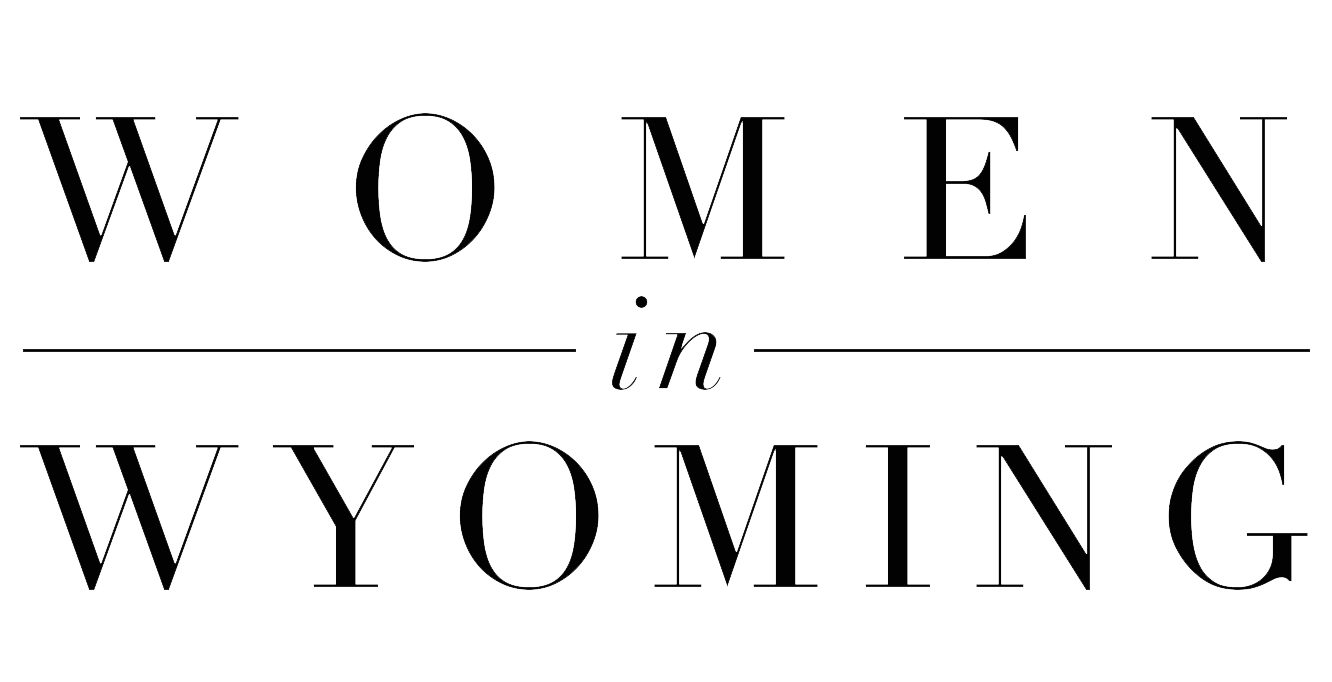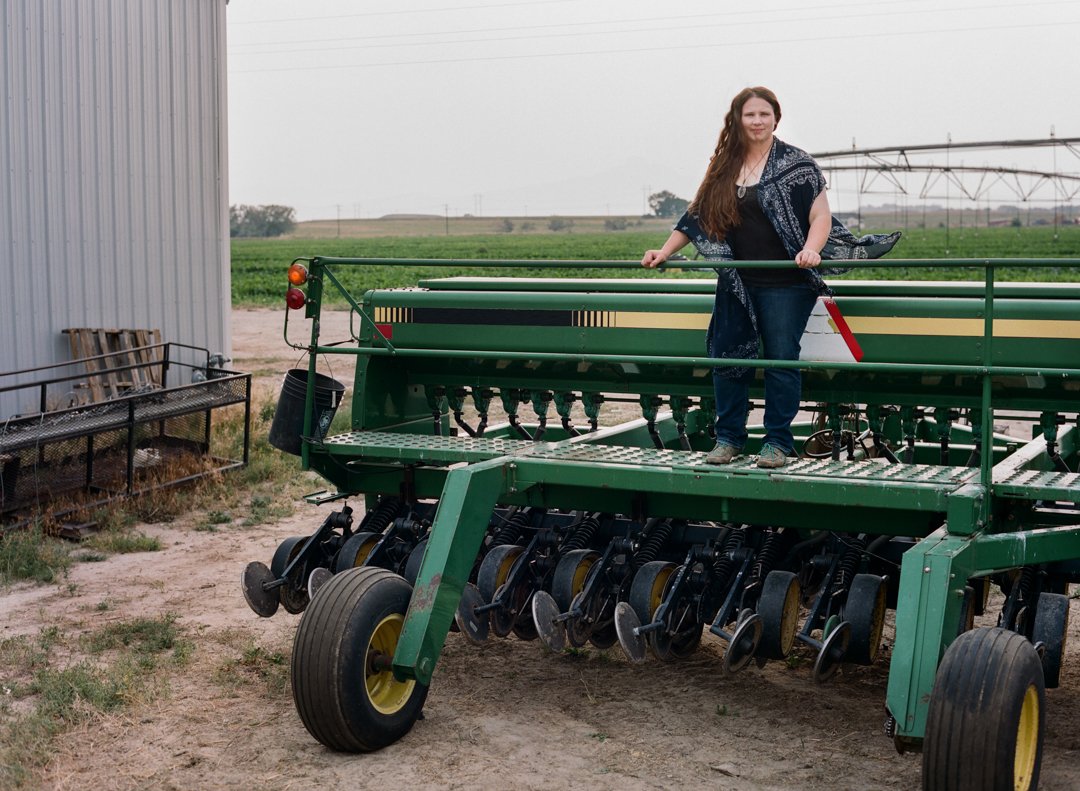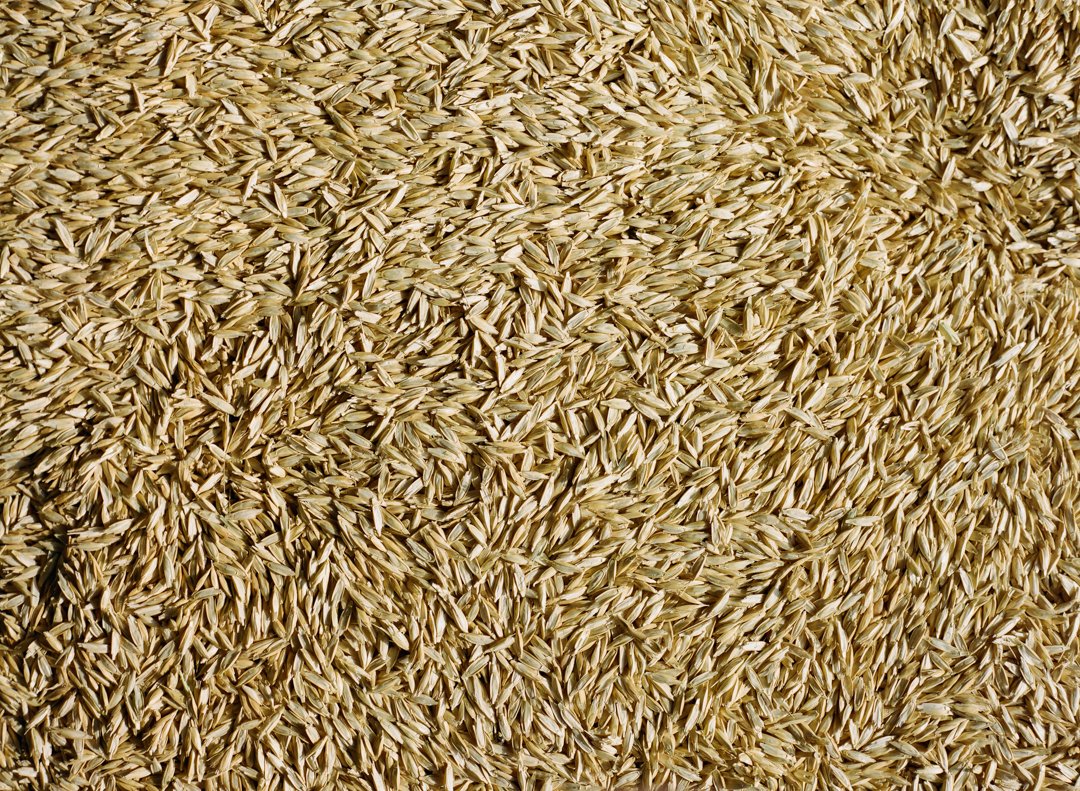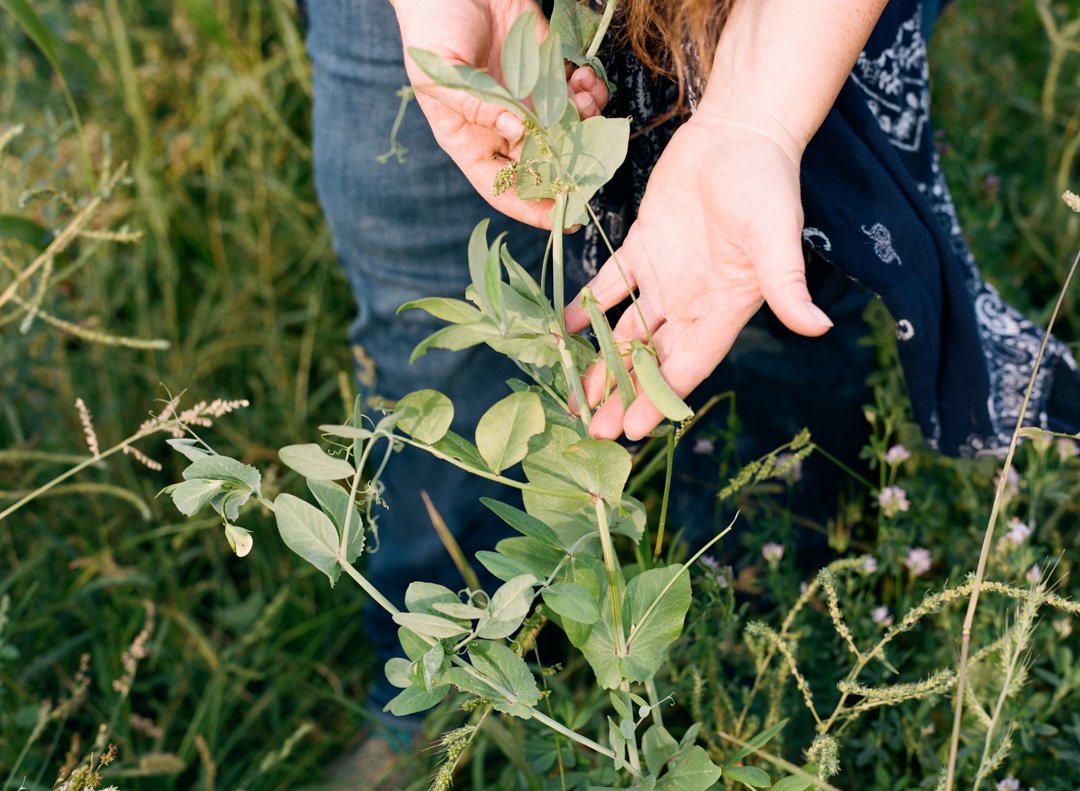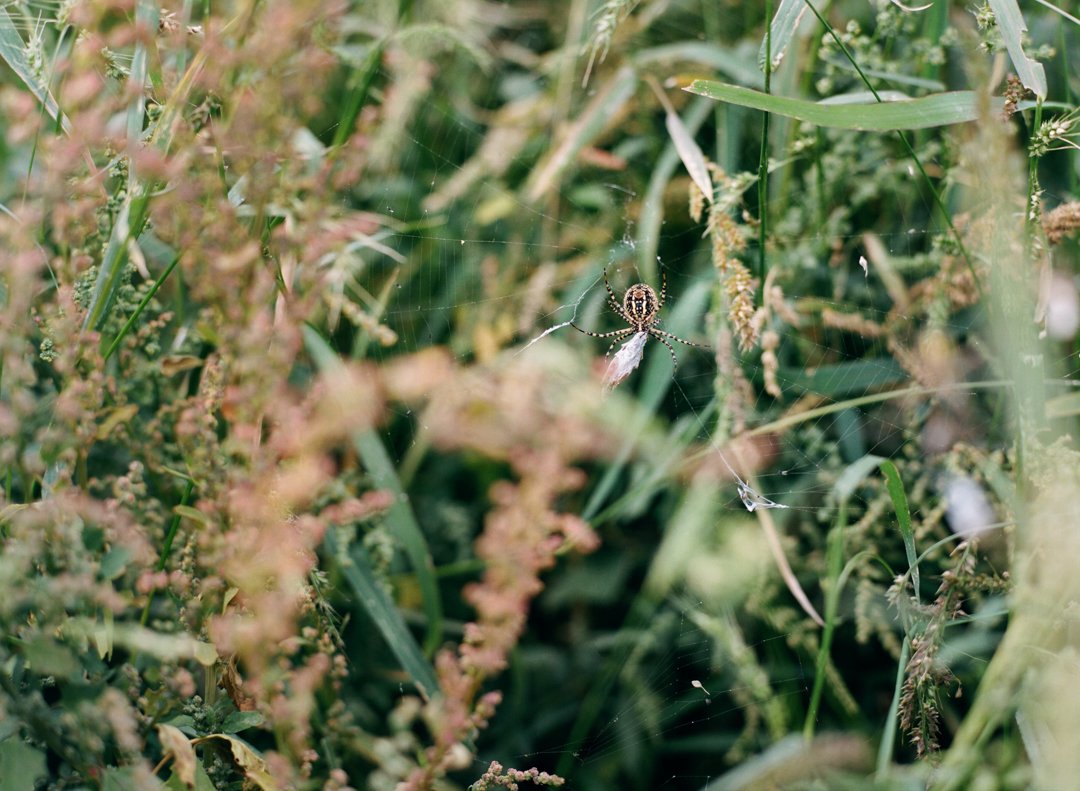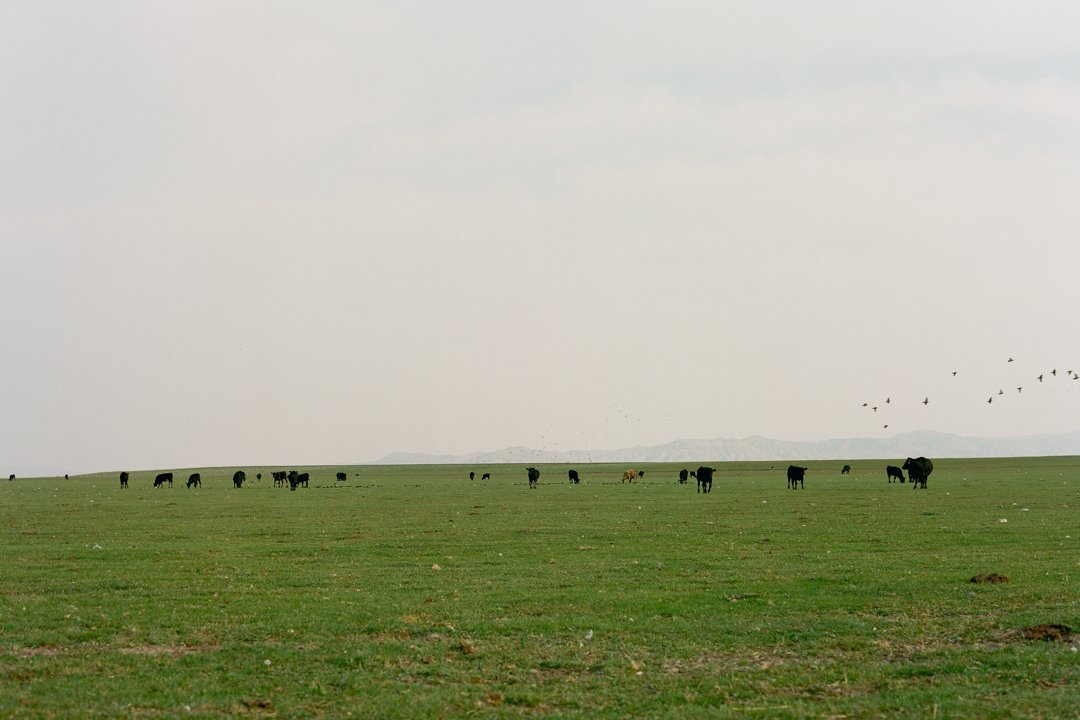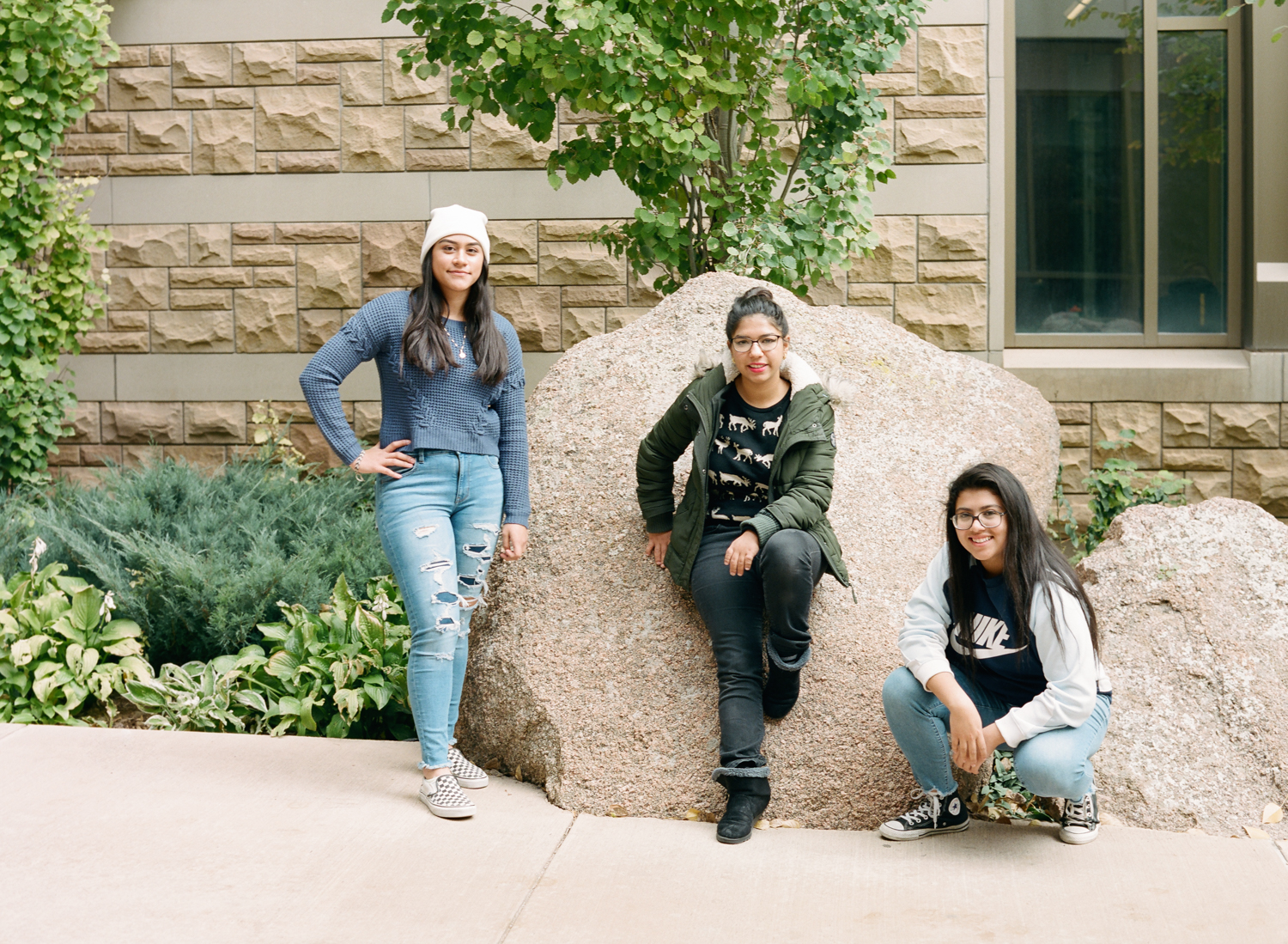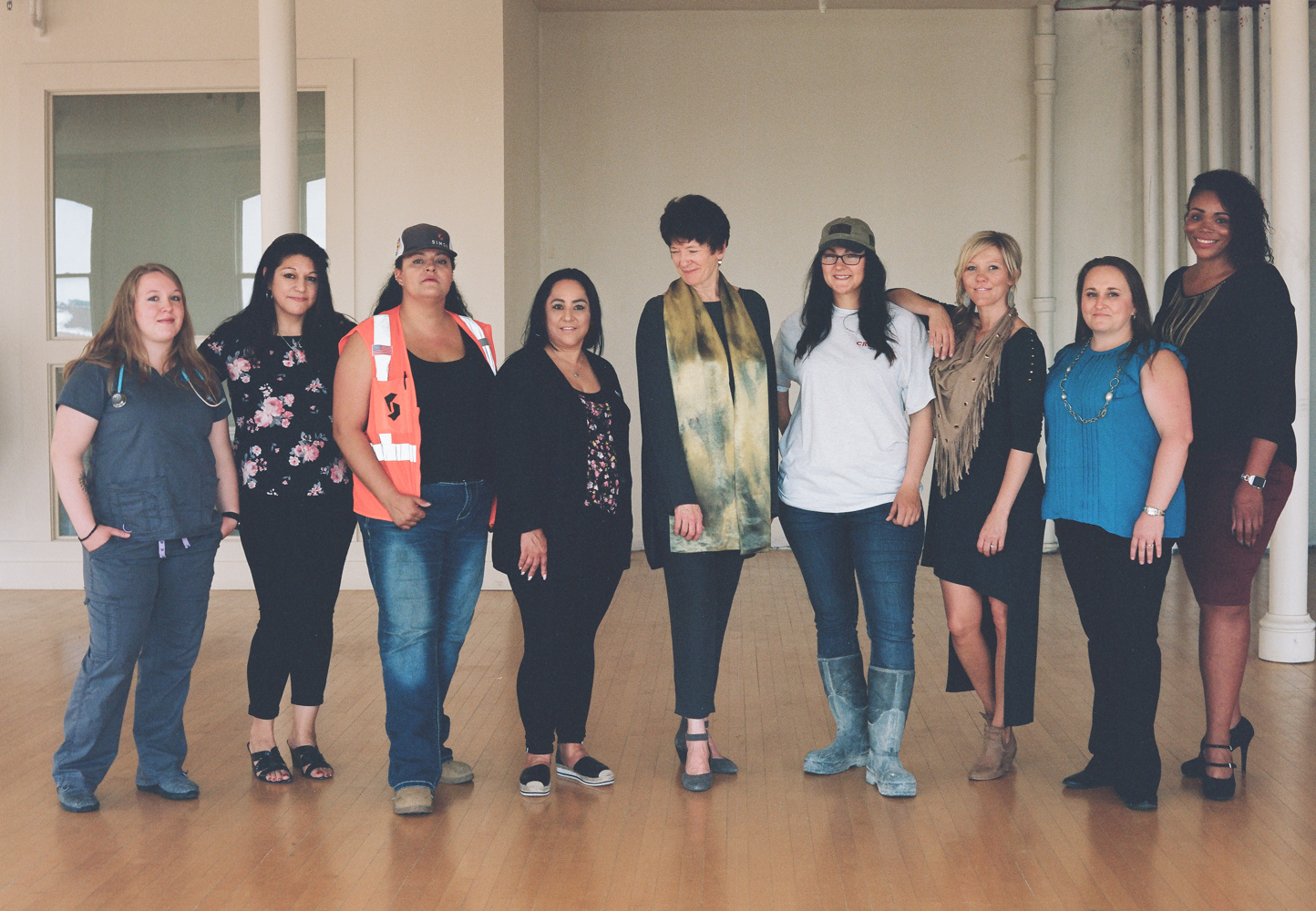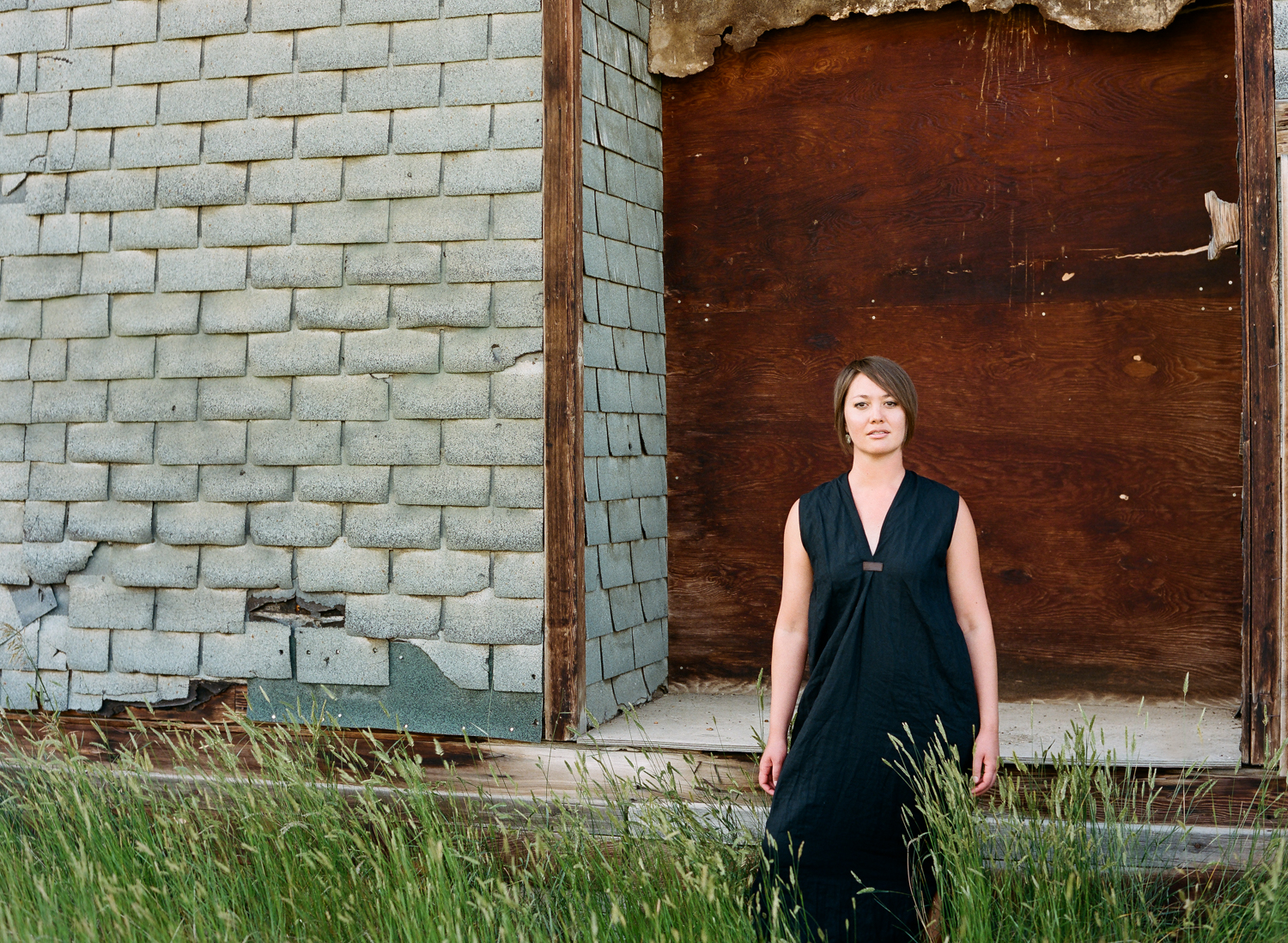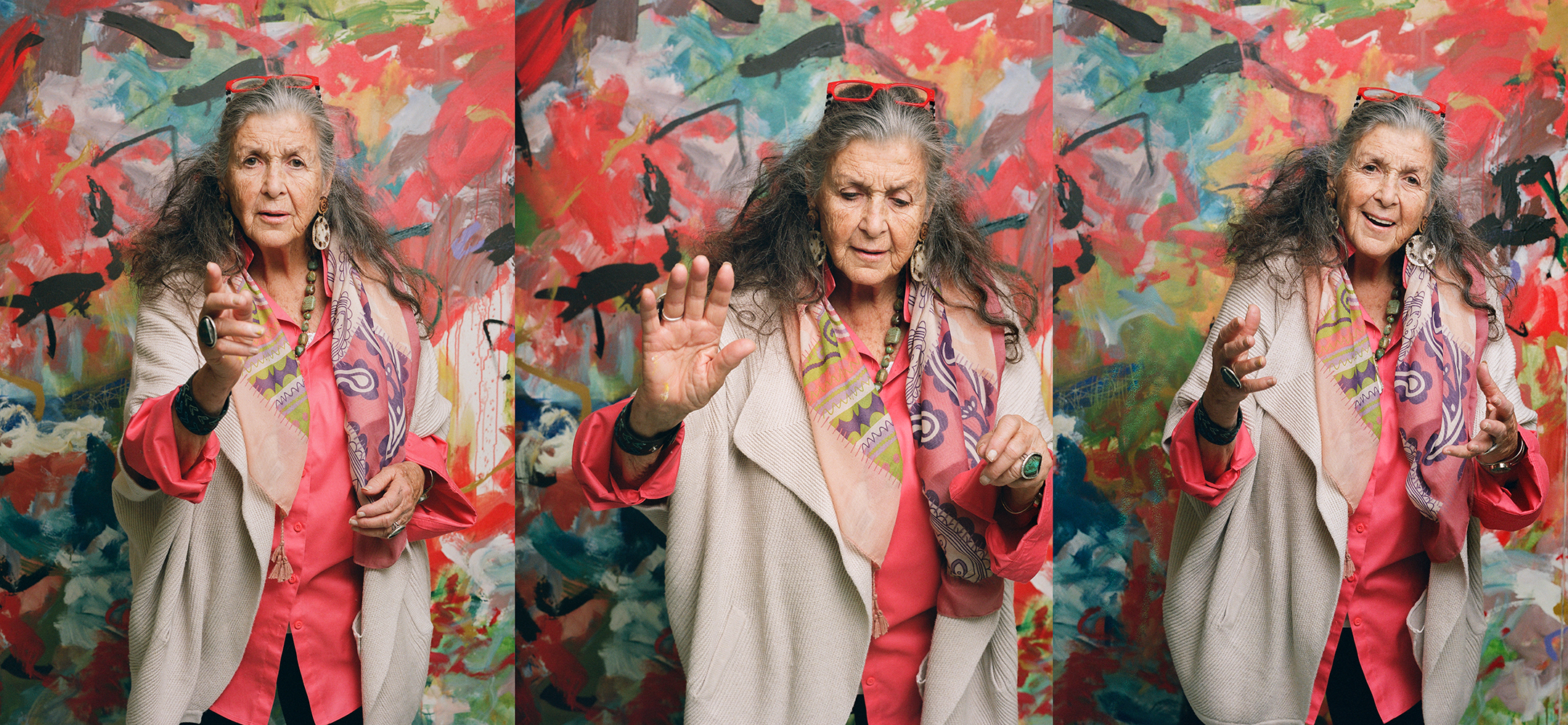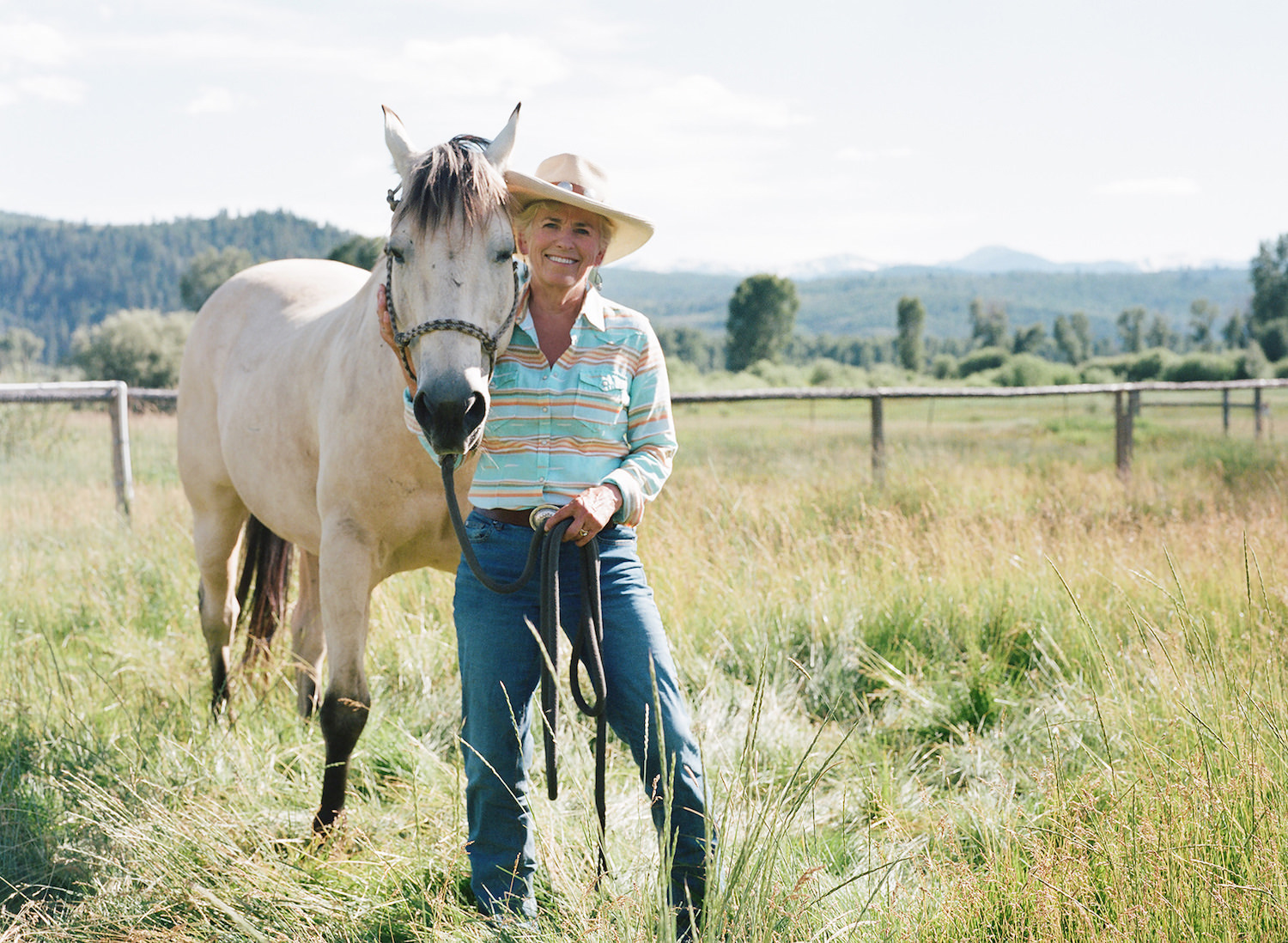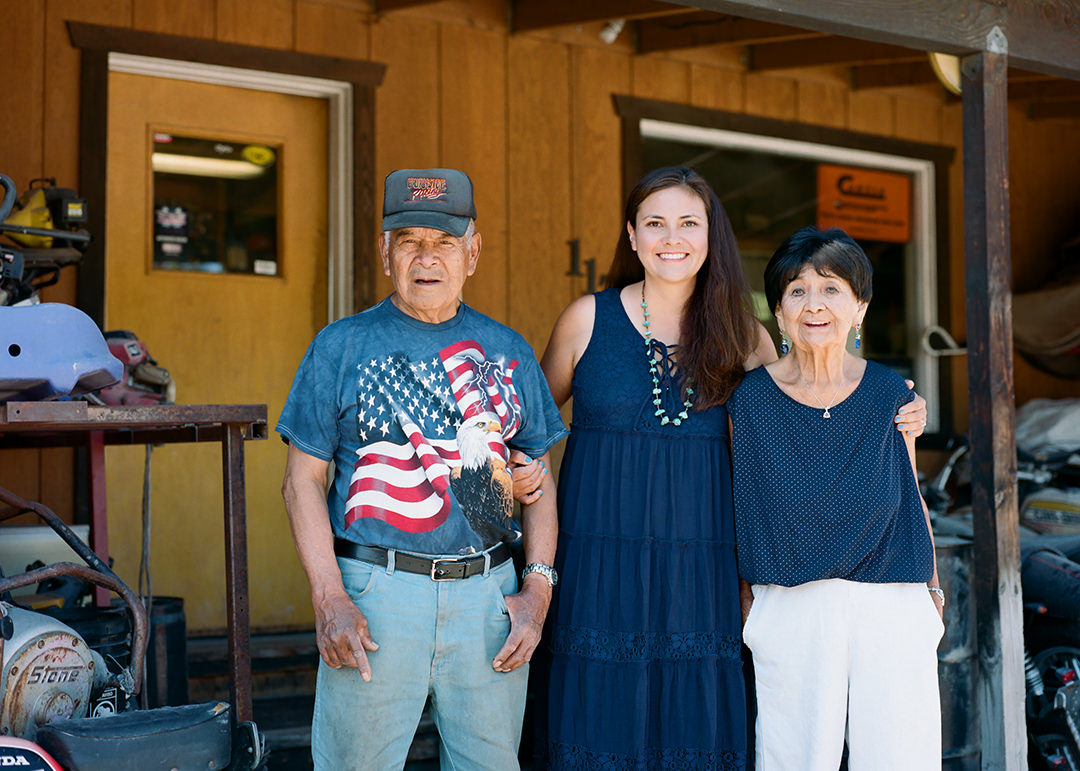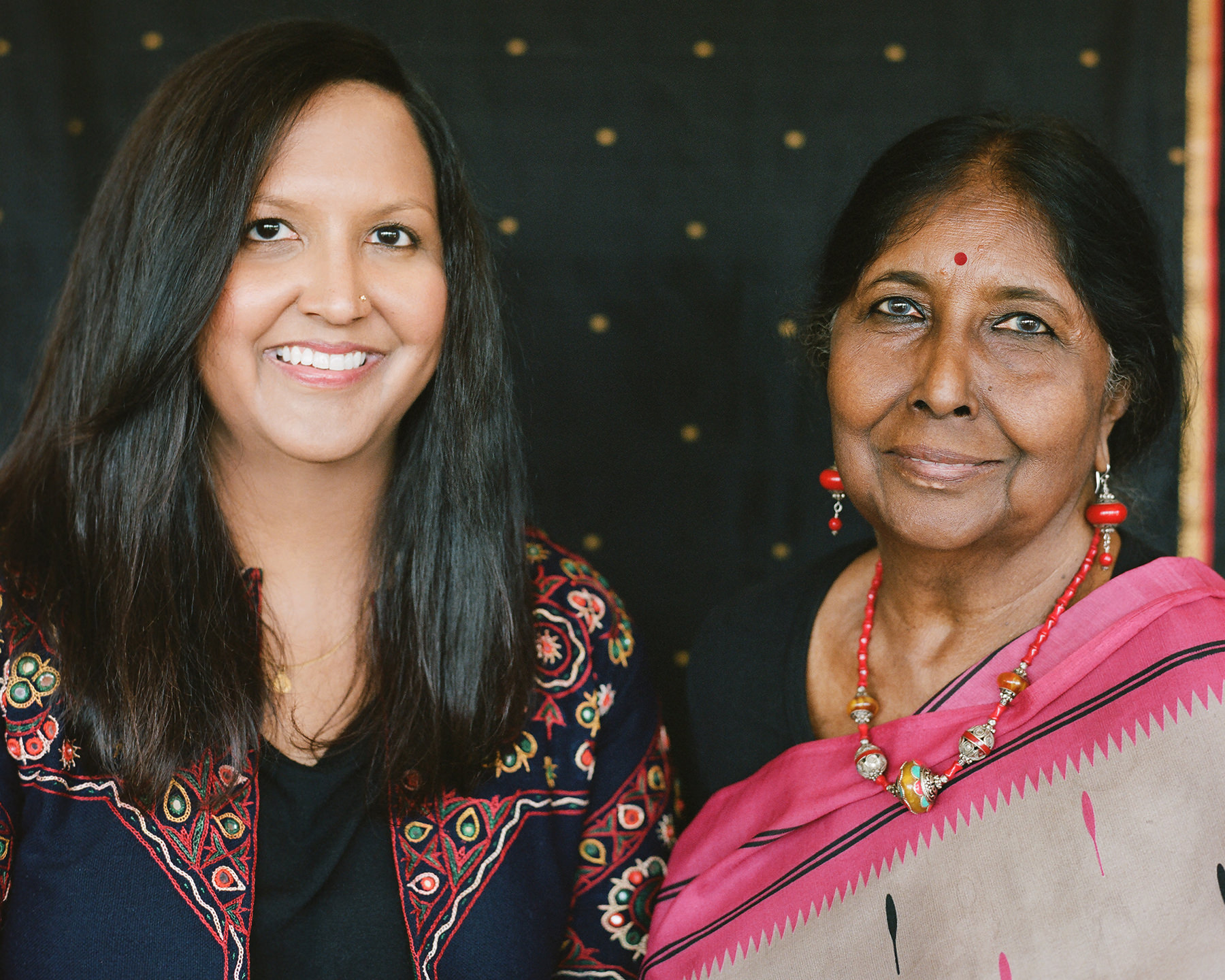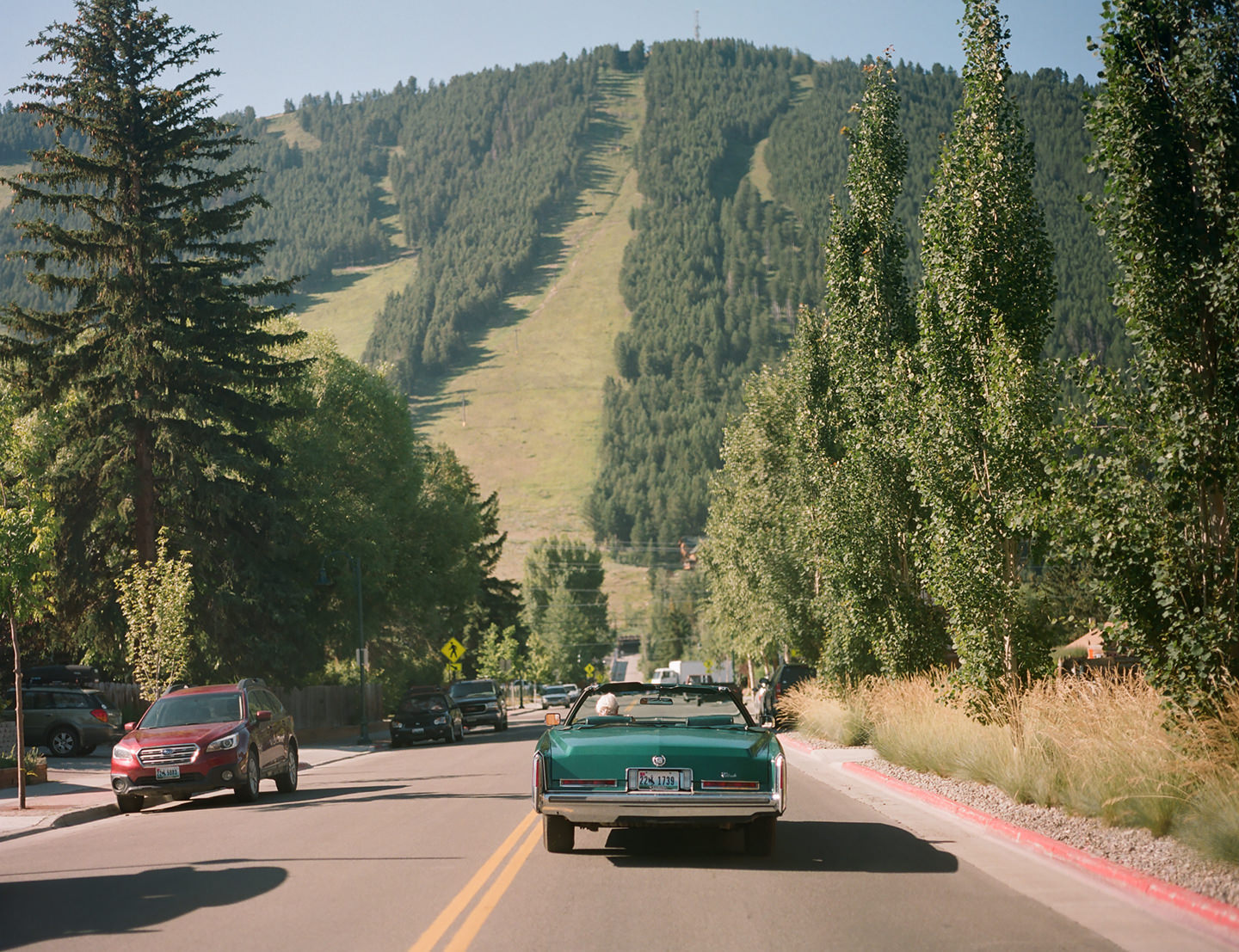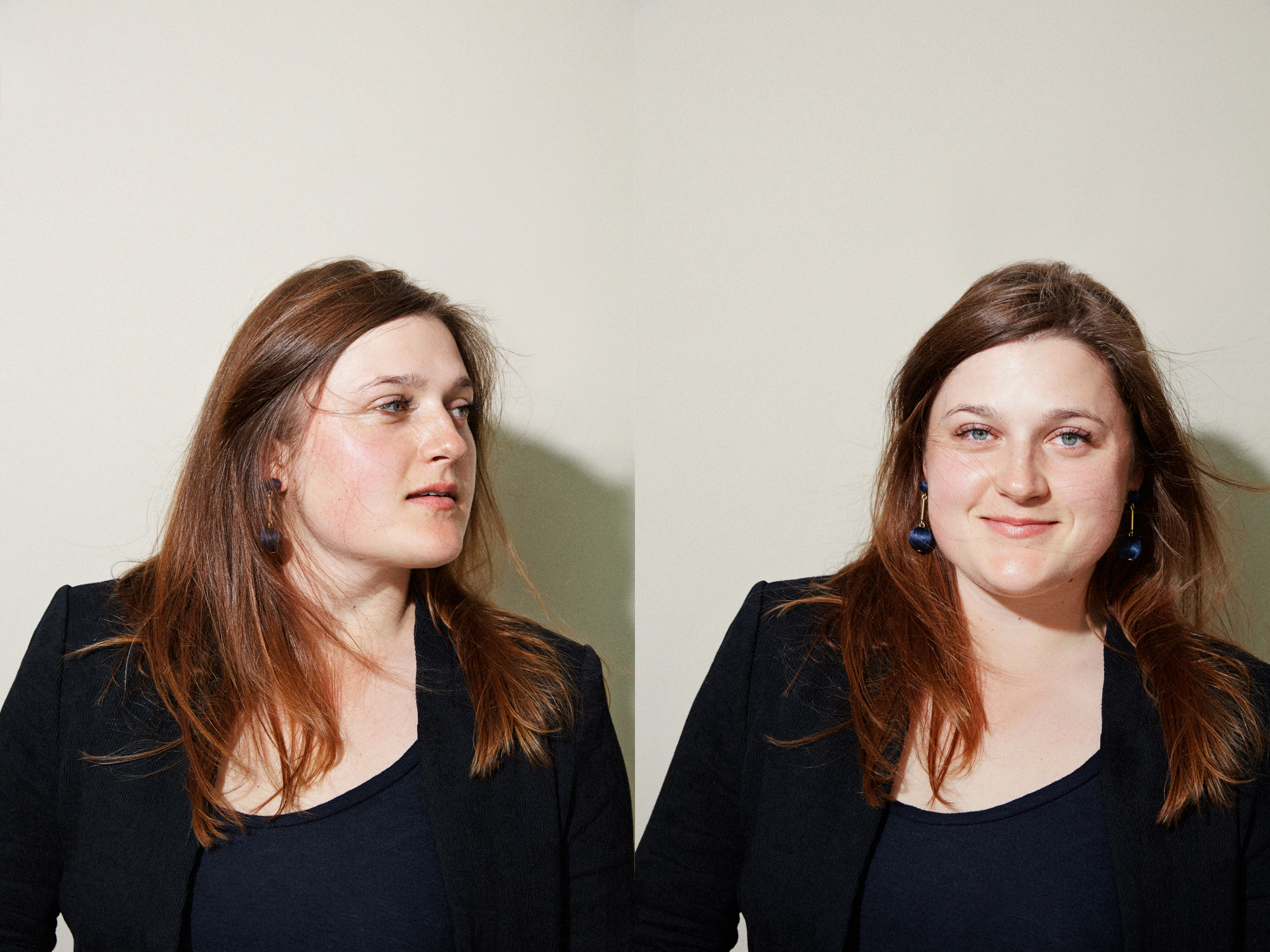SARA WOOD
Regenerative farmer, heritage grain grower, and operator of Wyoming’s only commercial flour mill
Sara Wood is the owner and founder of Wyoming Heritage Grains, a direct to consumer regenerative farm and flour mill specializing in heirloom and heritage wheats, barleys, and ryes.
“A big part of my mission is connecting people to their food, how what they have on their plate is grown and how it gets to their plate, and creating a bigger connection to the farming community and to agriculture.”
Listen to Sara’s story.
Driving down a country lane outside of Powell, Wyoming, you’ll find a field unlike the rest. There isn’t one crop neatly planted in rows, but seven, all wildly intermixed and ranging in height from ground cover to upwards of five foot stands. It’s seemingly unkempt, but there's a method to what looks like a little madness. If you listen carefully, you’ll hear a cacophony of sounds- from bumble bees and cutter bees to beneficial wasps and other pollinators. The aptly named “salad field” is the center of 4th generation farmer and 5th generation Wyomingite Sara Wood’s regenerative farm, heirloom grain, and flour mill operation.
Sara gets a lot of attention for her salad field, but she never imagined she’d continue the family business and become a full-time farmer herself. Her family first arrived to the Big Horn Basin in northwestern Wyoming in the early 1900s and has farmed on their current property since 1946. Passion, resilience, a love for the land, and a high tolerance for unpredictability are just a handful of qualities required to farm. You can’t control the weather, cost of supplies, or the price you’re paid for your yield through traditional commodity markets. For many family farms, the decision to sell to developers after years of hard work and uncertain gain is understandable. Sara knew they had to do things differently if they were going to sustain their ground for another 100 years.
Stone Milled, Regeneratively Grown
In 2017, she became curious about why more people are gluten intolerant and discovered heritage and heirloom grains, which are ancient, pre-hybridized varieties of wheat, oat, barley, and rye. Realizing how much biodiversity has been lost in our current food and seed chain supply through corporations like Monsanto, Sara went to work. She left her corporate job and convinced her father and uncle to completely transform their traditional farm, growing conventional crops like sugar beets, corn and beans, into a regenerative agricultural operation. They use several species of cover crops and companion crops, rotational grazing and no till practices to raise their heritage wheats, barleys, and rye. They are more self-sufficient because they don’t rely on added fertilizers and pesticides to manage their soil and crop health. The largest, and possibly riskiest transformation to the farm was ditching the traditional commodity market for a direct to consumer model.
Biodiversity is life on earth. As the owner and founder of Wyoming Heritage Grains, Sara believes good food should be sustainably grown and nutrient dense, so life on the farm begins underground. Keeping food in her community and connecting people to where their food comes from and how it gets to their plate is of utmost importance. For Sara, an unexpected joy of becoming a farmer has been milling all her own flour. She’s the only commercial flour mill in Wyoming and sells White Sonora pancake mix, red fife berries, several types of flours and many more offerings. From seed to table, you’ll never find Sara’s yield shipped off to another state or country before returning to your plate.
Sara is considered an outsider for doing things differently, but growing food holistically isn’t a new concept. Luckily, the salad field is a great conversation starter. Sara fields a lot of questions from other farmers who stop and wonder what she’s doing. These conversations help Sara on her quest to strengthen the agricultural community and empower more farmers to think outside the box. Ultimately she wants everyone to be more aware about what it takes to grow, process, and deliver food to market, while also cultivating connection between farmers, ranchers, other land stewards, and consumers. Sara is most inspired by nature and says, “Farming is an ecosystem. You can grow your garden like an ecosystem, plant your lawn like an ecosystem, or whatever you have available to you. It’s all going to make a big impact. Everyone has a role to play, but if we don’t all work together, it’s not going to work.”
In 2017, Sara became curious about why more people are gluten intolerant and discovered heritage and heirloom grains, which are ancient, pre-hybridized varieties of wheat, oat, barley, and rye. On their regenerative farm, they use several species of cover crops and companion crops, rotational grazing and no till practices to raise their heritage grains which Sara mills and sells directly to the consumer.
“It’s so unimaginable that there’s so much life underground. It’s really important to have biodiversity within your animals and crops. We want to be diverse because it makes our food healthier, the soil healthier and makes life in general healthier. We’re mimicking nature and doing it in a way where we can sustain our food but also sustain the health of our soil and the health of our planet.”
“Farming is an ecosystem. You can grow your garden like an ecosystem, plant your lawn like an ecosystem, or whatever you have available to you. It’s all going to make a big impact. Everyone has a role to play, but if we don’t all work together, it’s not going to work.”
Sara believes good food should be sustainably grown and nutrient dense, so life on the farm begins underground. They plant several species of cover crops to nurture soil health and therefore grow a healthier yield. Above: Sara stands in the aptly named “salad” field, where multiple plant species are grown together from sorghum sudan grass to peas, clover and sunflowers.
Resources:
